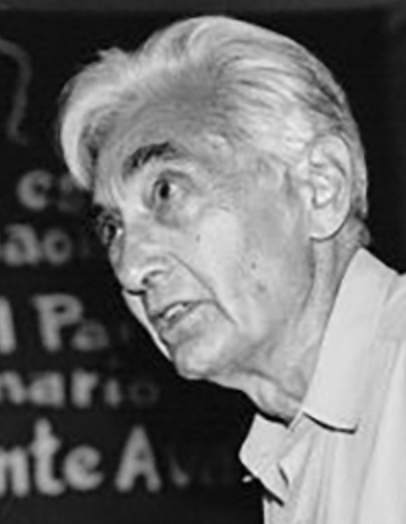On this date in 1922, historian, author and peace activist Howard Zinn was born in New York City to Jewish immigrants. As a 17-year-old, Zinn attended a political rally in Times Square at the urging of neighborhood Communists and was knocked unconscious by police. He joined the Army Air Corps in 1943, received an Air Medal and, upon returning home, placed his medal and military papers in a folder on which he wrote “Never again.”
Zinn attended New York University and received a doctorate in history from Columbia University. He became chair of the history and social sciences department of Spelman College, the historically black college for women in segregated Atlanta, in 1956. He participated in the civil rights movement, served on the executive committee for SNCC (the Student Nonviolent Coordinating Committee) and inspired many of his students, including Alice Walker.
Fired for “insubordination” from Spelman in 1963 (for his criticism of the school’s failure to participate in the civil rights movement), Zinn took a position teaching history at Boston University, which he held until retirement in 1988.
An aggressive and early opponent of the Vietnam War (and war in general) and champion of liberal causes, Zinn’s 1967 Vietnam: The Logic of Withdrawal, was the first book calling for immediate withdrawal from the war with no exceptions. His A People’s History of the United States, published in 1980 with a small printing and little promotion, was a best-seller, hitting 1 million in sales by 2003. In his 1994 autobiography You Can’t Be Neutral on a Moving Train, Zinn wrote, “I wanted students to leave my classes not just better informed, but more prepared to relinquish the safety of silence, more prepared to speak up, to act against injustice wherever they saw it.”
While his publications were numerous, some of the highlights include the plays “Emma” (1976), about radical feminist and atheist Emma Goldman, “Daughter of Venus” (1985) and “Marx in Soho: A Play on History” (1999), and books such as Artists in Times of War (2003), History Matters: Conversations on History and Politics (2006), and Failure to Quit: Reflections of an Optimistic Historian (1993).
Zinn received the 1958 Albert J. Beveridge Prize from the American Historical Association for his book, LaGuardia in Congress; the 1998 Eugene V. Debs Award from the Debs Foundation; the Upton Sinclair Award in 1999; and the 1998 Lannan Literary Award. Zinn’s wife and lifetime collaborator, Roslyn, died in 2008. Zinn died of a heart attack at age 87 while swimming in a hotel pool in Santa Monica, Calif. (D. 2010)
PHOTO:Zinn at the Pathfinder Bookstore in Los Angeles in 2000. CC 4.0


